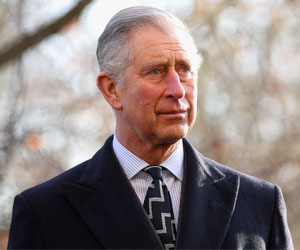British High Court has refused to lift lifetime ban on sprinter Dwain Chambers for drug abuse. Consequently he cannot participate in the forthcoming Beijing Olympics.
The 30-year-old athlete was banned from future Games by the British Olympic Association after testing positive for the steroid THG in 2003.Chambers argued that the ban was an unfair restraint of trade.
But Mr Justice Mackay refused to grant an injunction to temporarily suspend the lifetime ban before a full hearing - which is now not expected to go ahead - in March next year.
In his summing up, Mr Mackay said Chambers' right to work was not a good enough reason to overturn the ban, while the last-minute timing had also worked against him.
British selectors have to name their final squad for next month's Games in Beijing by Sunday at the very latest.
Chambers had already gained the necessary qualifying time for the 100m and comfortably won the British trials in a time of 10.00 seconds on Saturday.
Advertisement
BOA chairman Lord Moynihan said, "We will continue to send a powerful message that nobody found guilty of serious drug-cheating offences should have the honour of wearing GB vests at the Olympic Games."
Advertisement
After his positive test in 2003, Chambers admitted he had taken other banned substances to enhance his performance and also revealed to the BBC that he had started taking THG 18 months before he was eventually caught.
The revelation led to him being stripped of the 100m gold medal he won at the European Championship in 2002 and also cost him and his team-mates the gold they had won in the 4x100m relay.
While serving a two-year ban from the sport, he attempted to forge a career in American Football and earlier this year tried his hand at rugby league with Super League side Castleford.
But he did win silver for Britain in the 60m at the World Indoor Championships in March.
John Regis, who used to coach Chambers, said the decision would hit the athlete extremely hard.
"He'll be gutted, there's no other way to put it," he told BBC Radio 5 Live.
BBC Radio 5 Live sports news correspondent Gordon Farquhar said Chambers' absence would not have any significant impact on the country's medal prospects.
"We've lost our best sprinter, but our best sprinter's best time this year is only just scraping into top 10 in the world, so his prospects of a medal were only very slim anyway," he said.
Michele Verroken, the former head of anti-doping and ethics at UK Sport, said other countries should follow Britain's lead by taking a strong stance against former drug cheats at the Olympics.
"I would urge other nations around the world to consider the same eligibility by-law because it's a very important way of protecting the integrity of the Olympics, " she told the BBC.
The World Anti-Doping Agency (Wada) welcomed the High Court ruling.
"This decision sends a strong message that athletes who commit serious doping violations will have to face significant consequences," said Wada president John Fahey.
"I would urge other nations around the world to consider the same eligibility by-law because it's a very important way of protecting the integrity of the Olympics, " she told the BBC.
The World Anti-Doping Agency (Wada) welcomed the High Court ruling.
"This decision sends a strong message that athletes who commit serious doping violations will have to face significant consequences," said Wada president John Fahey.
Source-Medindia
GPL/S













